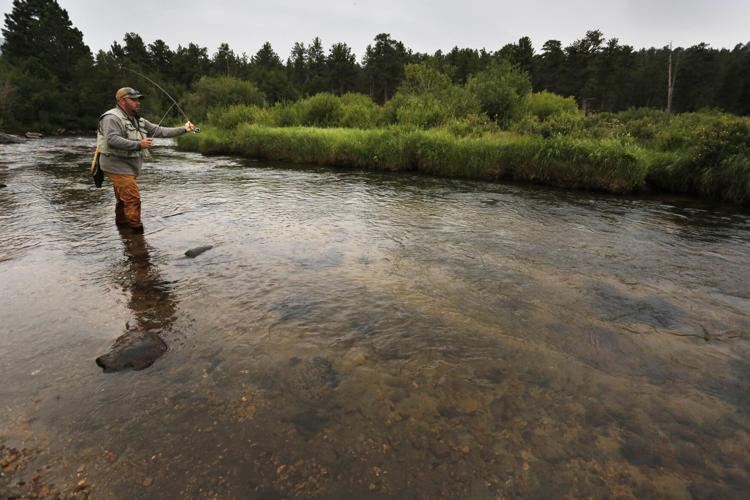U.S. House passes bipartisan conservation funding legislation

Angler Chris Atkins of Allendale, Mich., fly fishes on a pristine meandering stream inside Rocky Mountain National Park, near Estes Park, Colo., on Aug. 4, 2016.
(The Center Square) – The U.S. House of Representatives passed bipartisan legislation that will provide billions in funding for public lands across the country.
The Great American Outdoors Act, which passed the U.S. Senate in mid-June, was approved Wednesday in the House by a 310-107 vote.
The legislation received approval from President Donald Trump, who urged the House to approve the bill ahead of its vote.
“We MUST protect our National Parks for our children and grandchildren,” Trump tweeted on Wednesday. “I am calling on the House to pass the GREAT AMERICAN OUTDOORS ACT today.”
The act was first introduced in March by U.S. Sen. Cory Gardner, R-Colo., and received significant bipartisan support in the Senate.
The legislation creates the National Parks and Public Land Legacy Restoration Fund that would use tax revenue to cover deferred maintenance costs on federal public lands.
Total deferred maintenance costs, or infrastructure projects that have been delayed, have ballooned to $20 billion on all federal public lands, including $12 billion for the National Park Service alone.
The legislation would allocate up to $1.9 billion each year from energy development revenue on public lands to the fund, money that would be distributed to various federal land management agencies. It also dedicates $900 million annually to the Land and Water Conservation Fund (LWCF), which funds state and federal conservation projects.
Proponents of the legislation argue it will help kickstart local “gateway” economies that rely heavily on tourism to National Parks.
“In 2019, 328 million park visitors spent an estimated $21.0 billion in local gateway regions while visiting National Park Service lands across the country,” according to NPS. “These expenditures supported a total of 341 thousand jobs, $14.1 billion in labor income, $24.3 billion in value added, and $41.7 billion in economic output in the national economy.”
In Colorado, the 4.7 million tourists who visited Rocky Mountain National Park in 2019, spent $314 million in the park’s gateway communities like Estes Park and Grand Lake, according to NPS data. Rocky Mountain National Park had over $84 million in deferred maintenance costs in 2018.
“By fixing and repairing our public lands and National Parks, we not only have the chance to improve the roads, hiking trails, campsites, and visitor centers for generations to enjoy, but also to create thousands of job opportunities in Colorado and across the nation at a time when our country needs them most,” Gardner said in a statement.
Congressman Joe Neguse, D-Colorado, who spoke in favor of the legislation on the House floor, said he’s “incredibly grateful to our county commissioners, conservation groups, anglers and outdoor recreation businesses who have contributed time, dedication and commitment to this collaborative effort for many years.”
Brian Yablonski, CEO of the Bozeman, Montana-based Property and Environment Research Center, called the Great American Outdoors Act “long overdue.”
“Our public lands have been neglected for too long, allowing for wastewater systems to fall into disrepair, historic buildings to deteriorate, and trails to be overgrown,” he said in a statement. “The Great American Outdoors Act is long overdue and will help us fulfill our duty as conservationists by restoring what’s great about our great American outdoors and ensuring ‘America’s best idea’ is no longer just an afterthought.”

